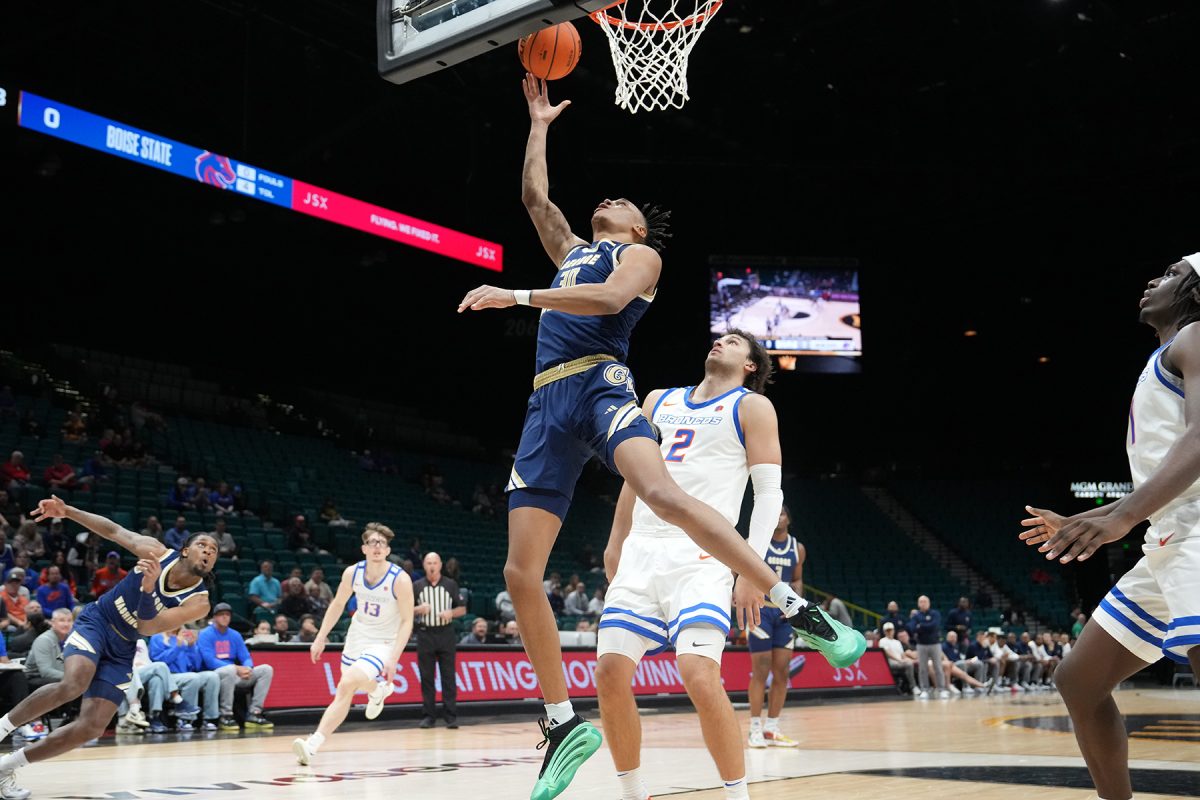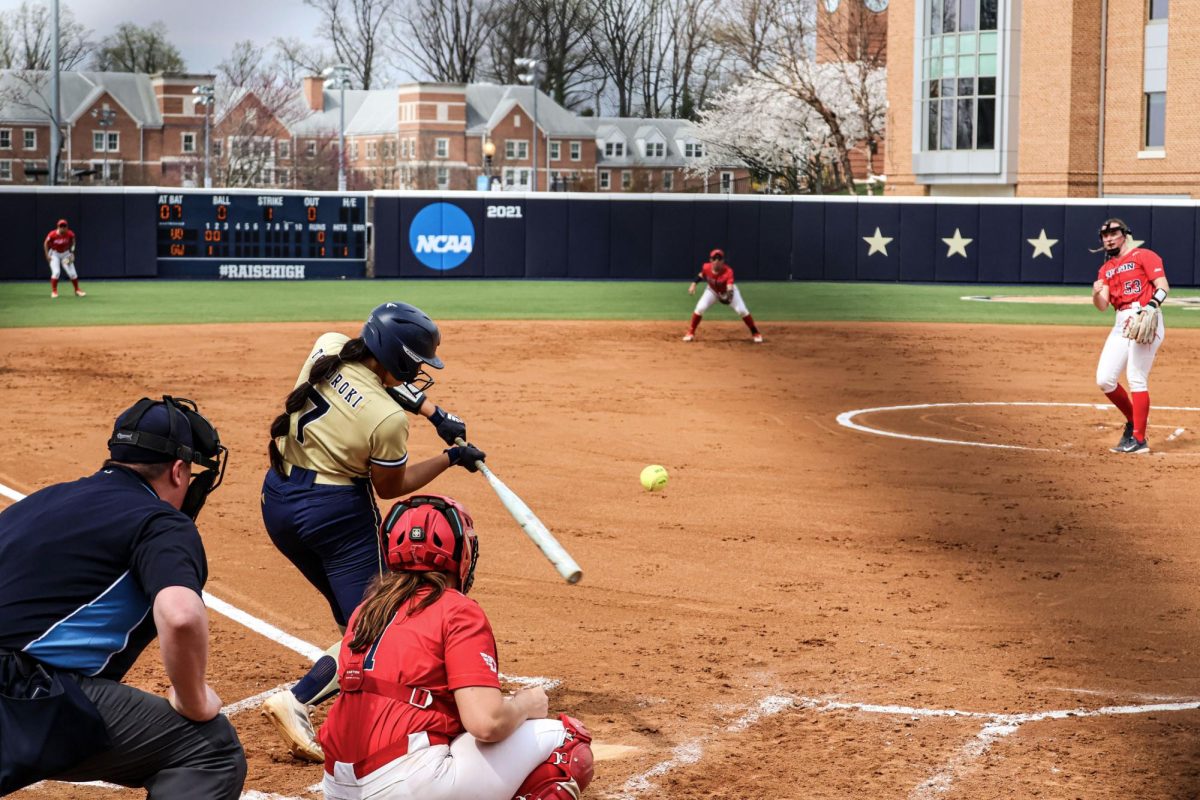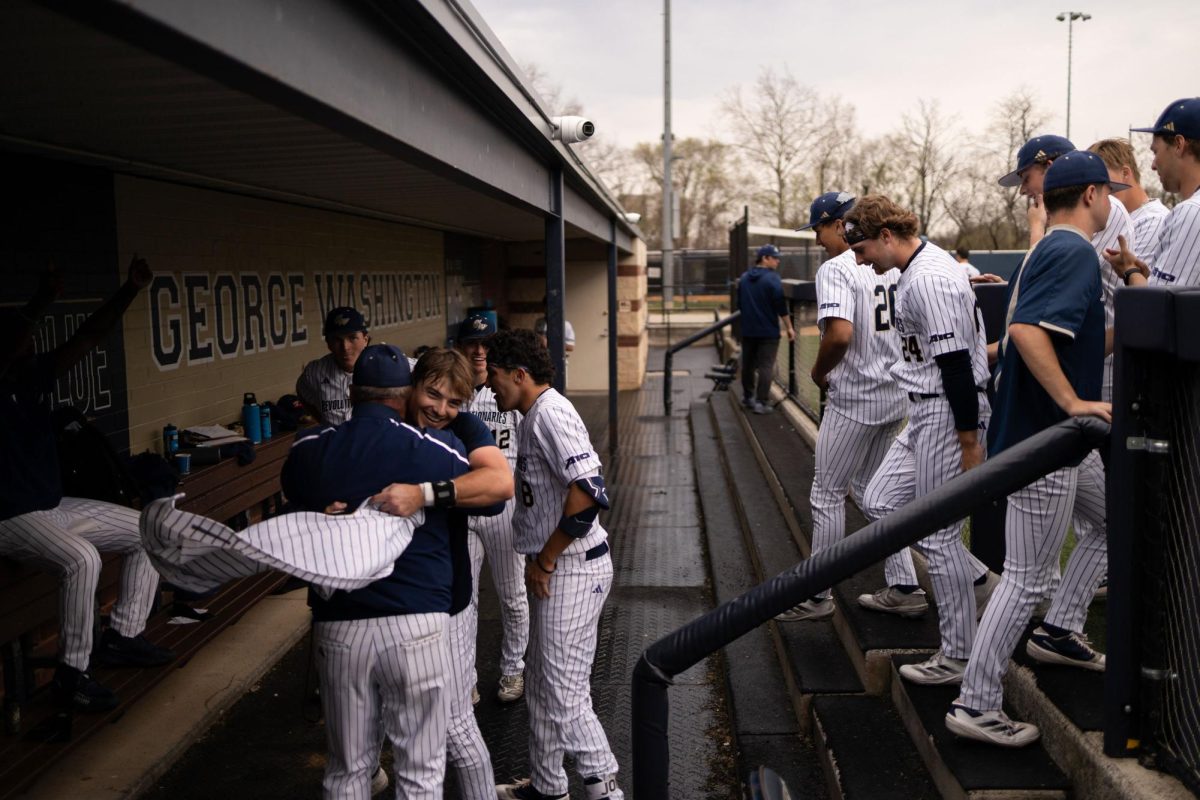White House roller hockey isn’t a varsity or intramural sport, but the club has become better known than most other student activities in the District. The dedicated group of hockey enthusiasts receives little outside financial support, but members meet weekly to compete and play the sport they love on a block of Pennsylvania Avenue in front of the executive mansion.
“The great thing about playing hockey in front of the White House is that everyone who plays with us is passionate about one thing: hockey,” said senior Jason Newcomer, a three-year veteran of the league. “It’s not about who we’re playing for or the points or the time. (It’s) for the love of the game.”
Heading up this entirely student-run organization is senior Jon Blumberg. Three years ago, as a freshman living in Thurston Hall, Blumberg gathered a group of fellow hockey devotees and began playing pick-up games on Pennsylvania Avenue at night.
Since then, word of mouth helped the cluster of GW freshmen grow to include players of all ages, including some from surrounding universities. Blumberg organized the league under his own direction during the 2001-02 school year and began collecting dues to increase appeal and regulation of the league. He said he uses the money exclusively for the league to pay for goals, jerseys and an annual championship trophy, which is given to the winner of a multi-round spring playoff series.
An added appeal for players is the unusual location of competition. The league does not have federal permission to use the pedestrian-only 1600 block of Pennsylvania Avenue for play, but White House guards and area police officers allow games to proceed uninterrupted.
“We entertain them,” Blumberg said. “After playing here so much, the Secret Service guys know us and even challenged us to a game once. I like this location because it’s a totally different experience that you can only have here in D.C.”
Senior Charlie Beattie, one of the league’s original goalies, agreed, referring to one incident when the game ball was accidentally launched over the White House fence and thrown back over by a friendly guard.
“I am hoping that one day, the president will walk out and congratulate me on a great save,” Beattie said.
Blumberg’s incentive to organize the casual games also came from the high price of ice hockey. While many area teams pay dues of several hundred dollars for only a few months of play and constrained ice time, Blumberg’s league costs $30 for the entire season, from August until May.
The league meets every Wednesday from 9 p.m. until midnight, with six teams playing three one hour-long games and one team receiving a bye. To avoid the cost of official referees, members of non-competing teams mediate games, usually without problems. Games are only canceled for rain or snow; players show up each week regardless of the temperature.
“Once we played when it was below 32 degrees,” Blumberg said. “It wasn’t the best idea, and we all had to take turns sitting in my heated car, but it was an experience.”
Approximately 75 students are assigned to seven teams, five of which consist of primarily GW students, as players are assigned according to their ability. Blumberg evaluates each participant in order to make teams as balanced as possible. Less than 10 league participants are women, but Blumberg said the league supports female participation.
“If you can skate forwards and backwards and stickhandle, you can play, no problem,” Blumberg said. “I think that the girls have a lot of courage to come out here and play competitively. The guys give them a lot of respect.”
Even players without previous experience are welcome to join once they have learned the basic skills. Blumberg said he invites beginners to practice with teams at their convenience and has had several players succeed in the playoffs after picking up a stick for the first time in September.
The playoffs, which take place in April and May, consist of three rounds, the first of which is single-elimination. The finals and semi-finals are then based on winning two out of three games. The reigning champions are called the “Secret Service,” while other teams include the “Flying Hellfish” and the “Rat Pack.”
The lighthearted team names reflect players’ attitudes about the league. They play hard and want to win, but in the end, everyone is there for the same reasons the league was originally founded: to have fun and enjoy playing the sport they love.






